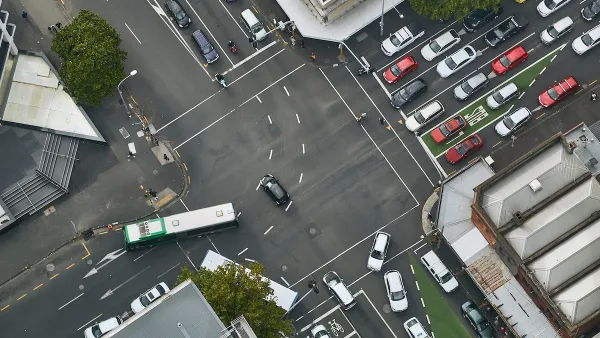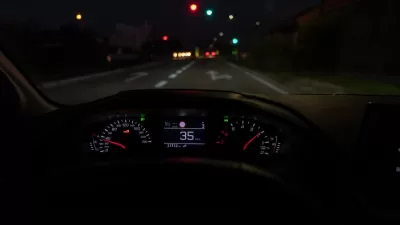A new set of guidelines will help the media improve the accuracy of traffic safety coverage.

The Active Travel Academy drafted a set of "Road Collision Reporting Guidelines" meant to reduce partiality and increase accuracy in reporting.
"There’s a problem with how we talk about our roads. From news reports on “accidents” to who gets blamed for road danger in comment pieces, our media sources sometimes flip the sources of death and injury on their head. Language and accuracy matter, and too often reporting contributes to making the roads less safe," write Laura Laker and Martin Porter.
Laker and Martin point to research indicating that different verbiage used to describe crashes "affects how people see the causes of and solutions to road danger."
"Representatives from national roads policing, the National Union of Journalists’ ethics council, road safety and legal experts, academics, and with advice from the independent journalism regulator Impress" helped to composed the guidelines.
The guidelines set forth the following instructions for publishers:
- Refrain from using the word "accident" when describing road collisions.
- Avoid negative generalizations when referring to road users or specific groups of road users.
- Uphold context and fact in reporting, including making mention of human actors involved in collisions.
- "Avoid portraying dangerous or criminal behaviour on the roads, such as speeding, as acceptable, or those caught breaking the law as victims."
FULL STORY: Why we need media reporting guidelines for road safety

Planetizen Federal Action Tracker
A weekly monitor of how Trump’s orders and actions are impacting planners and planning in America.

Restaurant Patios Were a Pandemic Win — Why Were They so Hard to Keep?
Social distancing requirements and changes in travel patterns prompted cities to pilot new uses for street and sidewalk space. Then it got complicated.

Map: Where Senate Republicans Want to Sell Your Public Lands
For public land advocates, the Senate Republicans’ proposal to sell millions of acres of public land in the West is “the biggest fight of their careers.”

Maui's Vacation Rental Debate Turns Ugly
Verbal attacks, misinformation campaigns and fistfights plague a high-stakes debate to convert thousands of vacation rentals into long-term housing.

San Francisco Suspends Traffic Calming Amidst Record Deaths
Citing “a challenging fiscal landscape,” the city will cease the program on the heels of 42 traffic deaths, including 24 pedestrians.

California Homeless Arrests, Citations Spike After Ruling
An investigation reveals that anti-homeless actions increased up to 500% after Grants Pass v. Johnson — even in cities claiming no policy change.
Urban Design for Planners 1: Software Tools
This six-course series explores essential urban design concepts using open source software and equips planners with the tools they need to participate fully in the urban design process.
Planning for Universal Design
Learn the tools for implementing Universal Design in planning regulations.
Heyer Gruel & Associates PA
JM Goldson LLC
Custer County Colorado
City of Camden Redevelopment Agency
City of Astoria
Transportation Research & Education Center (TREC) at Portland State University
Camden Redevelopment Agency
City of Claremont
Municipality of Princeton (NJ)





























